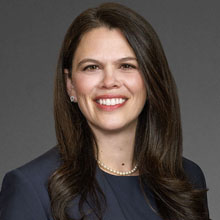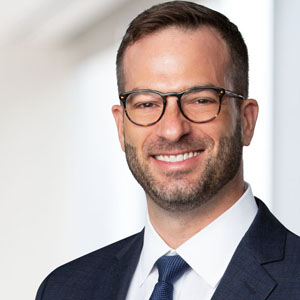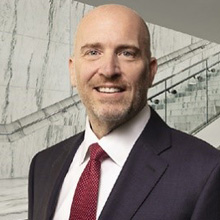Introducing the Creditor Coalition Contributors
This group of top restructuring lawyers, financial advisers, investment bankers, investors and law professors will examine timely financial and restructuring topics and share their insight, bringing light to complex and important issues.
Read on to meet the Contributors and the topics they'll tackle.

Rachel Albanese

Philip Anker

Martin Bienenstock

Kevin Eckhardt

David Elsberg

Marc Heimowitz,

Vlad Jelisavcic

Sidney Levinson

Mark Lightner

Kyle Lonergan

Jim Millar

James Newton

Bradford J. Sandler

Jennifer Selendy

Daniel Shamah

Paul Silverstein

Clifford J. White III
The views of our Contributors should not be attributed to their respective firms or the Creditor Rights Coalition. In addition, the Coalition may take positions as part of its Advocacy efforts that do not necessarily reflect the view of Contributors and should not be attributed to any Contributor.
Here’s What the Contributors have to say

By Cliff White1
After nearly two years of sometimes acrimonious wrangling between the Justice’s Department bankruptcy “watchdog” and prominent Houston law firm Jackson Walker LLP (JW) over legal fees, the parties announced that they would enter into mediation to resolve their dispute. The United States Trustee (UST) seeks denial and disgorgement of all fees requested or paid to JW in cases in which former Bankruptcy Judge David R. Jones presided while his live-in romantic interest was a partner in the law firm.
The news was greeted with some surprise by many because the UST seemed to have the upper hand after the bankruptcy reference was withdrawn by U.S. District Judge Alia Moses.2 The litigation, which had been progressing at a glacial pace under the bankruptcy court, began to pick up steam, and Judge Moses made numerous statements expressing strong disapproval of the ethical misconduct of Judge Jones and others involved.
Soon after the announcement of mediation, the UST and JW agreed on a mediator, retired Bankruptcy Judge Joan S. Feeney who now practices as a well-respected mediator and arbitrator.
Although government agencies have embraced alternative dispute resolution in many cases,3 mediation is often inherently adverse to government objectives, such as vindicating legal positions and deterring bad conduct in the future. Compromising the public interest is not the same as private parties making a financial deal that will have no implications beyond the current case.
Considering the posture of the current JW fee dispute and its centrality to the Jones cases, however, mediation may be the best avenue for expeditiously vindicating the integrity of the bankruptcy system. From a government perspective, consider the following:
1. Litigation Risk: Litigation risk should not be the government’s main concern, but it is a valid consideration that mediation can eliminate.
Although both the UST and commentators have made powerful arguments about JW’s obligation to disclose the intimate relationship between Judge Jones and the law firm’s partner, there is risk that the wording of Bankruptcy Rule 2014 provides a loophole in the disclosure requirements. Even when inveighing against the manifest improprieties reflected in Judge Jones’s conduct, District Judge Moses opined that JW was only one of the parties complicit in the scandal and therefore may deserve less than full disgorgement of the more than $20 million in fees at issue. But at the same status conference, she also asked, “why doesn’t Jackson Walker just disgorge everything and be done?”
The UST should and does not, however, view litigation risk in the same way that a private litigant may consider it. For example, if a party is alleged to have broken the law, then agreeing to a “slap on the wrist” would undermine the very reason for bringing the action. Government agencies should never bluff and generally should bring an action only if there is a legal principle at stake or a need to deter others from engaging in similar conduct. Compromising the fee disgorgement at, say, an amount significantly below the amount JW received would send a message that even egregious violations of conflict and disclosure laws are not that serious after all.
2. Telling the Story: This may be the key component of any settlement, and it is hard to see much room for compromise.
The UST has entered into a number of major settlements over the years to resolve UST actions nationwide against banks and other major bankruptcy actors. In many of these cases, entities accused of misconduct were not required to admit liability. But they were required to admit to facts about their actions even if they did not concede that those actions violated the bankruptcy law and rules or merited harsh remedies.
In one matter, an attorney for an entity that entered into a large-dollar settlement with the UST was later quoted in the press as saying the government’s action had no basis in fact (or words to that effect). When that same counsel soon thereafter sought a similar settlement for another client, the UST began to insist that all agreements contain a full recitation of the relevant facts about the other party’s conduct. There must be public confidence that government actions are both transparent and justified. Anything less defeats the purpose of the enforcement action. Telling the story is key to any successful resolution.
In the JW fee matters, this means that a fulsome explanation and admission of all key facts — both those found in the public filings and in the discovery which has been only partially disclosed to date — is perhaps the most essential component of any settlement agreement. Perhaps with a few exceptions, the facts that would come out at trial must be part of the settlement agreement.
3. Stop the Interminable Delays: The UST brought its fee actions and motions to withdraw the reference on November 3, 2023. After substantial delays in bankruptcy court, District Judge Moses is acting with dispatch. Even though there are high expectations that Judge Moses will conduct trial proceedings with alacrity, one can expect JW and perhaps others to try to create more delay. Plus, JW may appeal an adverse ruling.
The entire bankruptcy system — especially in the Southern District of Texas – has operated under the cloud of the Judge Jones scandal for long enough. There needs to be a definitive account of what happened and remedies imposed against wrong-doers. Even if there are other civil and criminal investigations potentially to be pursued on related matters, resolution of the fee dispute is the logical next step.
If the UST continues to focus on its objectives to provide transparency, vindicate legal principles, and hold wrong-doers to account, then settling the JW fee matter through mediation will serve the public interest and chasten all those who might be tempted in the future to go along with the bankruptcy crowd and sacrifice strict fidelity to the law in return for the easy money.
Copyright 2025 Creditor Rights Coalition
1 Mr. White headed the Justice Department’s United States Trustee Program from 2005-2022 and is now employed by a firm that provides technology and services to the financial industry.
2 Chief Judge Moses of the Western District of Texas sits in Southern District of Texas by designation. In Re Professional Fee Matters Concerning the Jackson Walker Law Firm, case no. 4:23-CV-4787 (S.D.Tex.), Document 31 (entered April 9, 2025).
3 For example, as USTP Director, Mr. White was personally and substantially involved in mediation of the UST’s dispute with McKinsey & Company over the consulting firm’s disclosures of its connections in bankruptcy cases in the Southern District of Texas.
